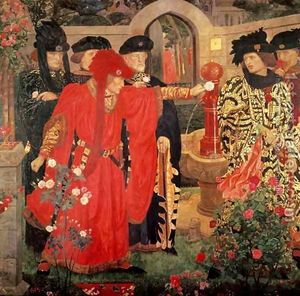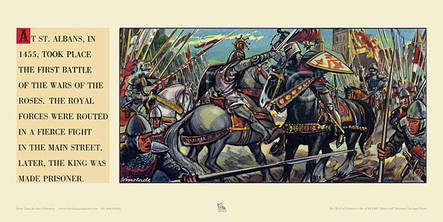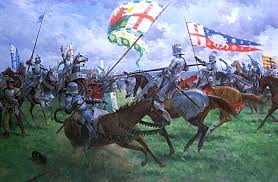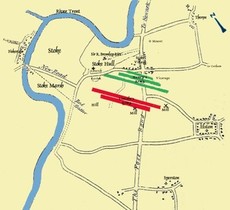The origins of these battles had their roots in the rivalry between the Duke of Somerset and the Duke of York. Following King Henry VI 'regaining his senses' Edmund Beaufort was given back his former post. To make matters worse, Beaufort was also given the captaincy of Calais which really rubbed York up the wrong way, eventually, it came to blows at St Albans. You could say that the following fifteen battles, not including Bosworth and Stoke, were just a continuation of this, although there was far more to it than that.
The beginning of the end was the death of Henry VI's son Edward at Tewkesbury, followed seventeen days later by Henry himself.
You could that say the Wars of the Roses did indeed end at Tewkesbury.
The fallout from the Black Prince's death cannot be underestimated. A boy king, an influential and 'lustful' uncle, an illegitimate brood and a usurper, lead you to follow two lines. Firstly that of the usurper, where you end up at Henry VI and Margaret Beaufort/Henry Tudor and secondly, if you follow the line of John Beaufort, Gaunt's illegitimate son, you get Margaret Beaufort and Henry Tudor. Which line you follow makes no difference you will end up with events of 1483 to 1485.
With all that in mind, you will have to say that the Wars of the Roses ended at Bosworth.
John de la Pole died on the battlefield, Lovell's body was not among the dead, but his days were numbered. This battle effectively wiped out the last of the Yorkist rebels, enabling Henry VII to establish the Tudor dynasty virtually unchallenged, on the battlefield at least.
Did the Wars of the Roses end with the Lancastrian victory at Stoke Field?




 RSS Feed
RSS Feed
